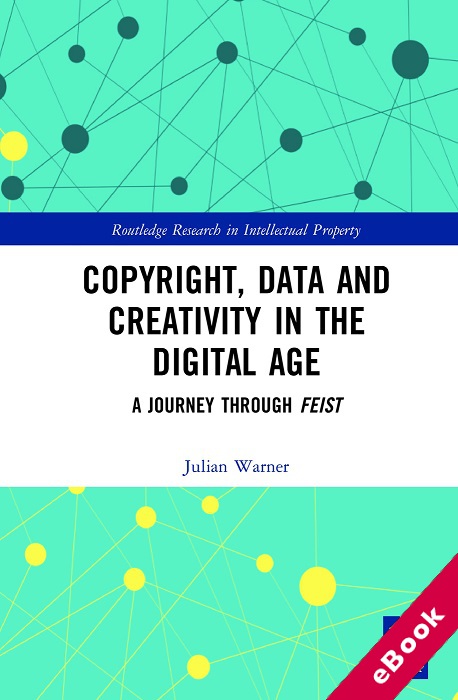
The device(s) you use to access the eBook content must be authorized with an Adobe ID before you download the product otherwise it will fail to register correctly.
For further information see https://www.wildy.com/ebook-formats
Once the order is confirmed an automated e-mail will be sent to you to allow you to download the eBook.
All eBooks are supplied firm sale and cannot be returned. If you believe there is a fault with your eBook then contact us on ebooks@wildy.com and we will help in resolving the issue. This does not affect your statutory rights.
The Supreme Court of the United States in Feist v. Rural (1991) required that databases must have a minimal degree of creativity for copyright. The judgment was highly significant and the subsequent period is understood as the post-Feist era. It has been globally influential. However, the decision is extremely complex and remains unsatisfactorily interpreted. In particular, it has been impossible to illuminate the creativity requirement.
The book gives an account of the decision’s conceptual structure, focusing on its full delineation of the opposite to creativity. In a radical and unprecedented innovation, it is correlated with an automatic computational process. Creativity itself is understood as non-computational or directly human activity concerned with meaning. Determining the presence of creativity is reduced to a four-stage test. This work then has acute practical current relevance to property in data in the digital age. It will also be of theoretical interest.
The work is aimed at researchers, practitioners, and students in intellectual property worldwide.
Julian Warner is a faculty member at Queen’s Management School, Queen’s University Belfast.